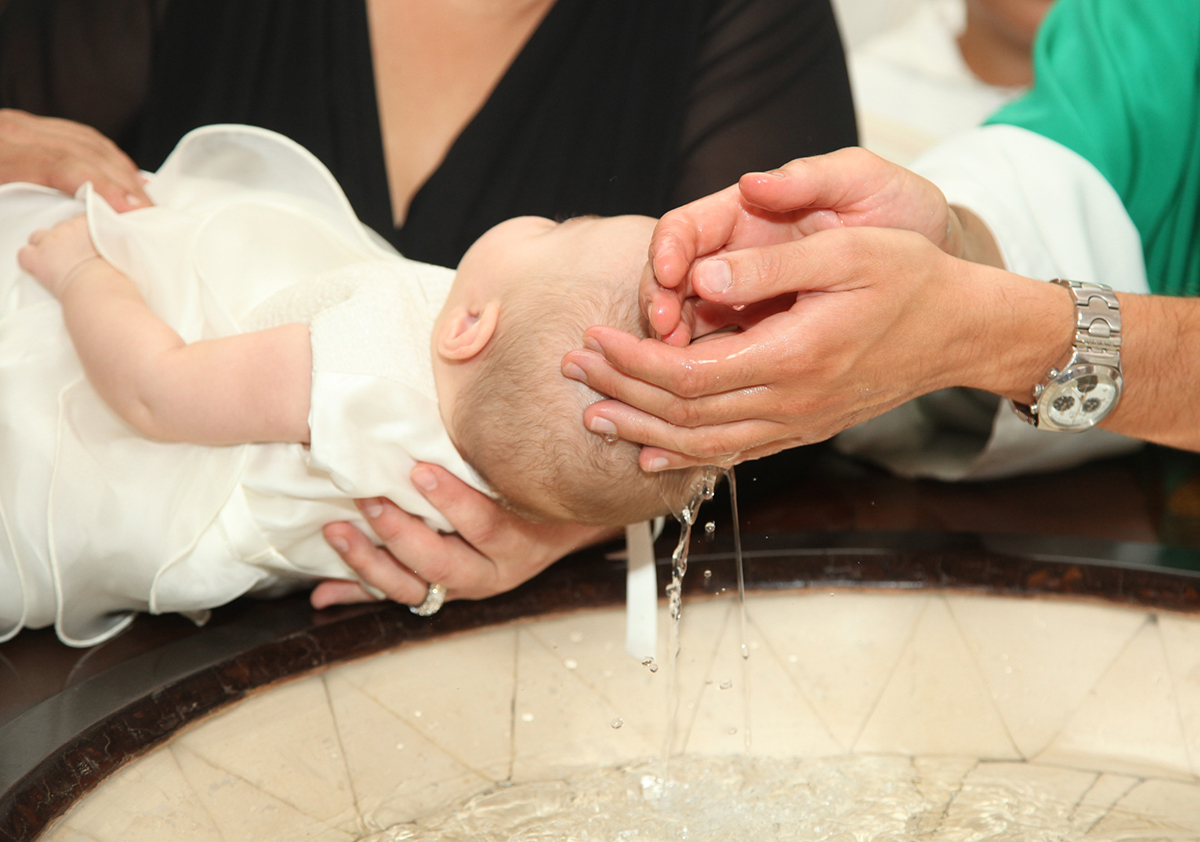

by Bobby L. Graham
A reader asks, “Why do some denominations ‘baptize’ babies?”
I inserted the quotation marks for the word baptize in the question above because it is here used with a different meaning from the term's biblical usage. Sprinkling/pouring water on babies is not the baptism of the New Testament. Some religious groups do, however, condone this practice for various reasons.
Catholics believe that the baby has the stain of inborn sin (the preferred Catholic term) from conception until infant "baptism" removes it. They think it so important that they allow anyone to "baptize" an infant or even an aborted fetus. They believe that the "unbaptized" infant is lost, as they have always taught. Catholics used to consign the "unbaptized" infants to a state of Limbo, located just above Purgatory, according to the mapping by some past Roman Catholic vision-claimers. The Catholic's Sacred Heart Cemetery in Cullman, AL, has a section inside the fence dotted by several small gravestones for those infants which they deemed to be in Limbo. The Roman Catholic Church dropped its tradition of Limbo in 2007; they would do well to drop other practices, such as infant "baptism."
They know the New Testament word baptidzo/baptisma means immerse or immersion, depending upon its part of speech. Still, the problem is that they compromised on the meaning many centuries ago when they allowed water to be poured on a sick person's head in what they termed "clinical baptism." They have believed that the infant is born needing to be cleansed of Adam's sin-stain from the idea's inception with Augustine. The Bible does not teach this idea but insists that the child has a pure nature, which all others need to gain through conversion (Matt. 18:3). The practice of infant "baptism" was a development of the second and third centuries after the death of the apostles. The Bible does not teach that sin can be inherited from parents by offspring. Individual accountability and guilt are clear biblical teaching (Ezek. 18:1-24). The Lord told ancient Israel to stop using the proverb expressing that the children received their sinful ways from their parents, and moderns need not use it again. Jesus did not believe this doctrine, nor did Paul teach or believe it (John 9:3; Rom. 7:7-11).
Other groups retain the practice of infant "baptism," some to remove original sin, but others as a formality for entering the church, not to remove the stain of original sin (the preferred Protestant term). In this matter, they have altered their view, so they no longer believe the "unbaptized" infant is lost.
Why do they retain the practice? They view it more as an induction into the family of God and an occasion for the parents to pledge their faithful training/dedication of their child.
The New Testament clearly teaches that, for a penitent believer, baptism bears the same relation to salvation as does repentance and faith (Acts 2:38; Mark 16:15-16). That means baptism is essential to salvation, just as are belief and repentance (John 8:24; Acts 17:30).
Baptism was a command of God for both Jews and Gentiles (Acts 2:38; 10:48). Baptism was always practiced by accountable/responsible persons, never by unaccountable children (see the cases of conversion in Acts and the various passages on baptism).
In both Catholic departures and Protestant deviations, we observe man's penchant for imposing his views on the divine plan (Eccl. 7:29). Let us remember that man cannot direct his path and that there is no way to improve on the perfection found in God's way in the Bible (Isa. 55:8-9; 2 Tim. 3:16-17). 


